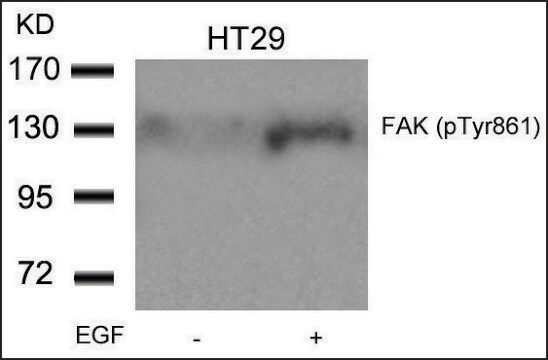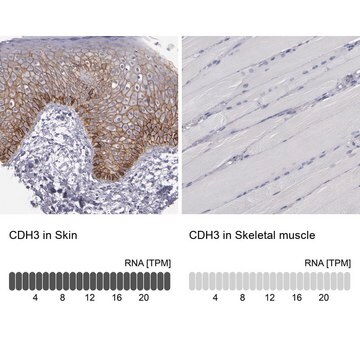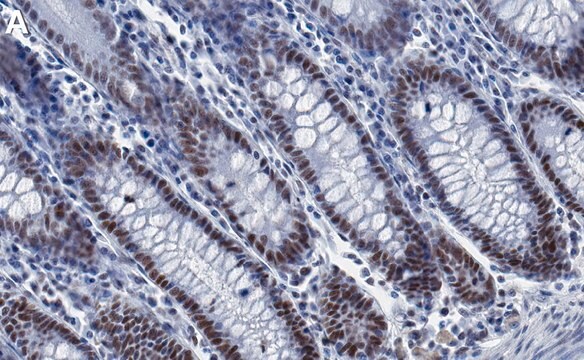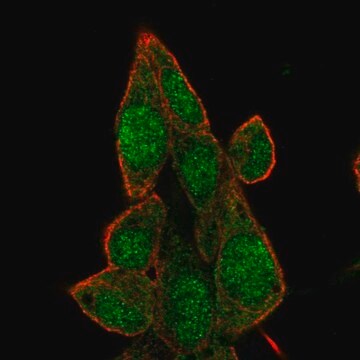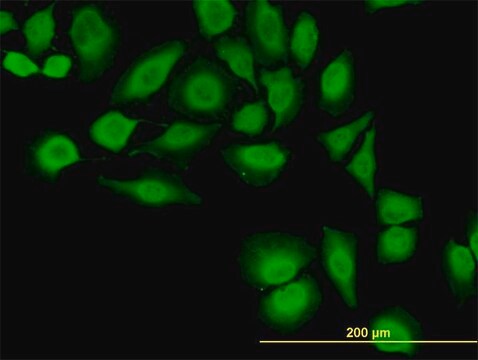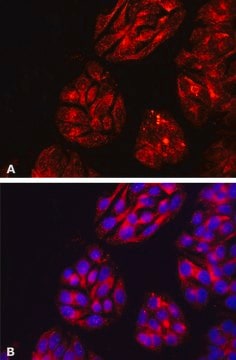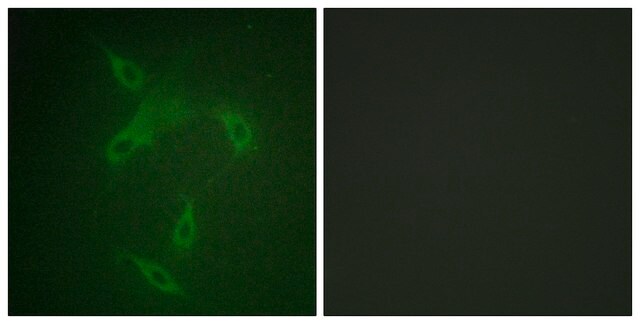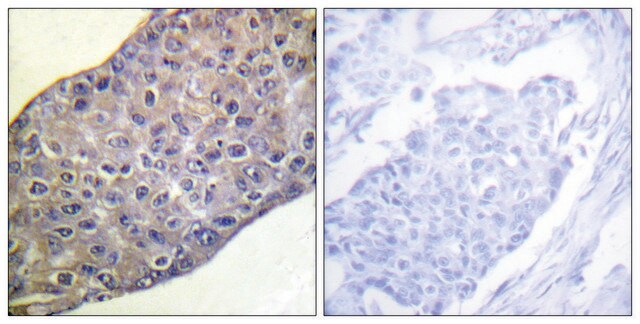SAB4200047
Anti-BRD7 antibody, Rat monoclonal
clone BRM 2D3, purified from hybridoma cell culture
Sinônimo(s):
Anti-BP75, Anti-Bromodomain containing 7, Anti-CELTIX1, Anti-NAG4, Monoclonal Anti-BRD7 antibody produced in rat
About This Item
Produtos recomendados
fonte biológica
rat
conjugado
unconjugated
forma do anticorpo
purified from hybridoma cell culture
tipo de produto de anticorpo
primary antibodies
clone
BRM 2D3, monoclonal
forma
buffered aqueous solution
peso molecular
antigen ~80 kDa
reatividade de espécies
rat, mouse, monkey, human, bovine, canine
embalagem
antibody small pack of 25 μL
técnica(s)
immunocytochemistry: suitable
immunoprecipitation (IP): suitable
western blot: 0.5-1.0 μg/mL using HeLa cells extract
Isotipo
IgG2a
nº de adesão UniProt
Condições de expedição
dry ice
temperatura de armazenamento
−20°C
modificação pós-traducional do alvo
unmodified
Informações sobre genes
human ... BRD7(29117)
Categorias relacionadas
Descrição geral
Aplicação
- immunoblotting
- immunoprecipitation
- immunocytochemistry
Ações bioquímicas/fisiológicas
forma física
Exoneração de responsabilidade
Não está encontrando o produto certo?
Experimente o nosso Ferramenta de seleção de produtos.
Código de classe de armazenamento
10 - Combustible liquids
Ponto de fulgor (°F)
Not applicable
Ponto de fulgor (°C)
Not applicable
Certificados de análise (COA)
Busque Certificados de análise (COA) digitando o Número do Lote do produto. Os números de lote e remessa podem ser encontrados no rótulo de um produto após a palavra “Lot” ou “Batch”.
Já possui este produto?
Encontre a documentação dos produtos que você adquiriu recentemente na biblioteca de documentos.
Nossa equipe de cientistas tem experiência em todas as áreas de pesquisa, incluindo Life Sciences, ciência de materiais, síntese química, cromatografia, química analítica e muitas outras.
Entre em contato com a assistência técnica